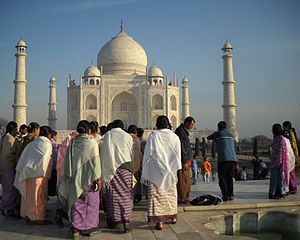India: A million mutinies now over criminals in politics
It’s an eye-catching figure – 30 per cent of members of India’s lower house of parliament have criminal cases against them. Ditto for state legislatures across India.
This is not a situation that can be remedied by the law.
On Wednesday, the Indian Supreme Court barred any legislator convicted of an offence that carries a jail term of more than two years, even if the conviction is under appeal in a higher court. As my former colleague, Abheek Barman of The Economic Times, points out, “This reverses a subsection of the Representation of the People Act, which says that you don’t need to quit if your case is on appeal. (But) this ruling – or any ruling – cannot do a thing to clean up the system.”
He is right. India is like Italy or Haiti or anywhere that has laws but little systemic propensity to enforce them. As Abheek says, even before Wednesday’s Court ruling, India had ample ways to prevent the selection – and/or election – of a corrupt or venal candidate. The Representation of the People Act prohibits anyone who is religiously exclusivist, convicted of bribery, promotes untouchability, been cruel to women adulterated food and other despicable things. And yet, 30 per cent of MPs and state legislators have criminal cases against them.
It’s all about the will of the people.
As a Foreign Policy blog points out, quoting a study by Berkeley researchers Rahul Verma and Pradeep Chhibber, most voters prefer a convicted representative who gets the job done over a squeaky-clean ineffectual one.
The researchers said: “In the National Election Study, voters were asked whether they would prefer a candidate with a criminal record who gets work done or a clean politician who cannot get their work done. The rural poor said that they would not mind voting for a candidate with a criminal record if the candidate can get their work done. They also preferred an approachable politician to an honest politician. The poor’s preference for a politician who can get things done ‘no matter what’ is, in our opinion, because of the daily actions of a state that either treats the poor shabbily all year round, intimidates them, or is simply absent. That needs to be addressed.”
It is this disconnect that needs to be tackled.
As the world’s largest democracy, India owes it to itself to make democracy and governance fit snugly together.
Might electing an impeccable nullity for a politician be a bit like apple pie without cheese (ie akin to a kiss without a squeeze) :
A ‘clean’ MP without a track record
Is like democracy and governance are
No longer in accord


